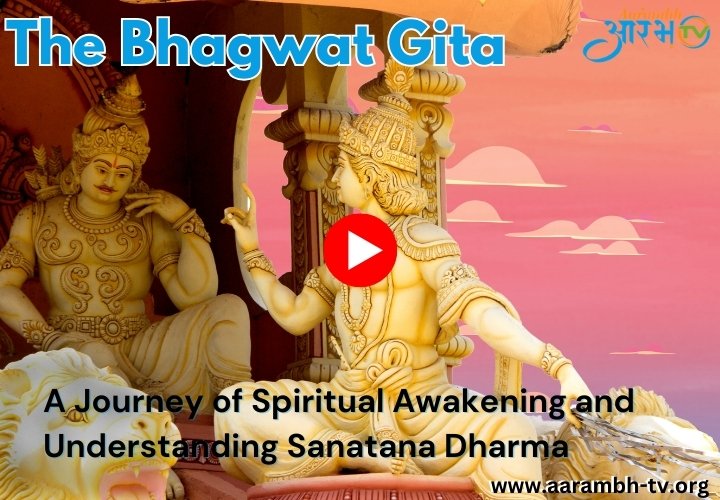In today’s world that is full of technology and material things, many are turning to ancient spiritual wisdom to find meaning, peace, and clarity. Among the most revered texts in Hinduism is the Bhagavad Gita, a timeless scripture that continues to guide millions on their spiritual journey. As more people seek spiritual enlightenment, resources like Bhagwat Gita gyan online offer easy access to this profound knowledge. However, to truly understand its significance, it’s important to dive deep into the context of the Bhagwat Gita, its connection to Sanatana Dharma, and the role of traditional cultural heritage in preserving this wisdom.
The Bhagwat Gita: An Ancient Text with Timeless Wisdom
The Bhagavad Gita is part of the Indian epic, the Mahabharata, and is a conversation between Prince Arjuna and Lord Krishna. The text consists of 700 verses and offers profound teachings on life, duty (dharma), and the nature of the universe. Arjuna, who is confused and morally troubled about his role in the impending war of Kurukshetra, seeks guidance from Krishna. The Gita addresses key philosophical questions and provides clarity on the purpose of life, the concept of the self, and the path to liberation (moksha).
Bhagwat Gita Gyan Online: Bringing Ancient Wisdom to the Digital Age
In the digital era, accessing spiritual knowledge has never been easier. The rise of Bhagwat Gita gyan online platforms has made it possible for people across the globe to study and reflect on the teachings of this sacred text from the comfort of their homes. These online resources often provide comprehensive explanations, translations, and commentaries by learned scholars, making the Gita accessible to a broader audience. Many platforms offer virtual classes, meditation sessions, and interactive discussions, allowing individuals to deepen their understanding of the Gita’s teachings and apply them to daily life.
Traditional Cultural Heritage and the Preservation of Spiritual Wisdom
One of the central tenets of Hinduism is the preservation and transmission of spiritual knowledge. Sanatana Dharma, or the eternal way of life, emphasizes the importance of maintaining a connection with our cultural and spiritual roots. This connection is nurtured through the study of ancient texts like the Bhagwat Gita, as well as participation in religious rituals, festivals, and community gatherings. These practices help preserve the traditional cultural heritage that has been passed down through generations.
Exploring the Best Spiritual Retreats in India
India, the birthplace of the Bhagwat Gita and Sanatana Dharma, is home to some of the world’s most renowned spiritual retreats. These retreats offer an opportunity to immerse oneself in a serene environment, engage in meditation and yoga, and learn from spiritual masters who guide visitors on their quest for self-realization. From the tranquil Himalayas to the sacred city of Varanasi, India’s spiritual retreats provide a perfect setting for reflection and inner peace.
Embracing Sanatana Dharma in the Modern World
In a world marked by rapid changes and growing disconnection from traditional values, embracing the principles of Sanatana Dharma can offer profound guidance. The Bhagwat Gita teaches us that true peace comes not from external circumstances, but from aligning our lives with divine wisdom and purpose. Whether through online resources, immersive spiritual retreats, or the study of Hindu scriptures, we can all find a path back to the essence of Sanatana Dharma, the eternal way of life.
In conclusion, the fusion of Bhagwat Gita gyan online with the timeless wisdom of Sanatana Dharma and the immersion in traditional cultural heritage provide a pathway for modern individuals to reconnect with their spiritual roots. Exploring these teachings through digital resources or by attending one of India’s best spiritual retreats can help one experience the transformative power of this ancient knowledge and apply it to the challenges of contemporary life.






Comments